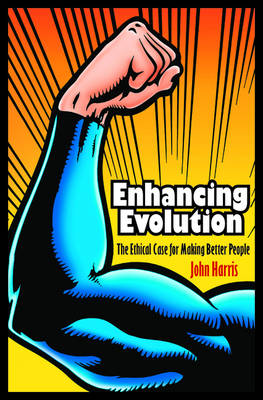Science Essentials
1 total work
Decisive biotechnological interventions in the lottery of human life - to enhance our bodies and brains and perhaps irreversibly change our genetic makeup - have been widely rejected as unethical and undesirable, and have often met with extreme hostility. But in "Enhancing Evolution", leading bioethicist John Harris dismantles objections to genetic engineering, stem-cell research, designer babies, and cloning to make a forthright, sweeping, and rigorous ethical case for using biotechnology to improve human life. Human enhancement, Harris argues, is a good thing - good morally, good for individuals, good as social policy, and good for a genetic heritage that needs serious improvement."Enhancing Evolution" defends biotechnological interventions that could allow us to live longer, healthier, and even happier lives by, for example, providing us with immunity from cancer and HIV/AIDS. But the book advocates far more than therapies designed to free us from sickness and disability. Harris champions the possibility of influencing the very course of evolution to give us increased mental and physical powers - from reasoning, concentration, and memory to strength, stamina, and reaction speed.
Indeed, he supports enhancing ourselves in almost any way we desire. And it's not only morally defensible to enhance ourselves, Harris says. In some cases, it's morally obligatory. Whether one looks upon biotechnology with hope, fear, or a little of both, "Enhancing Evolution" makes a case for it that no one can ignore.
Indeed, he supports enhancing ourselves in almost any way we desire. And it's not only morally defensible to enhance ourselves, Harris says. In some cases, it's morally obligatory. Whether one looks upon biotechnology with hope, fear, or a little of both, "Enhancing Evolution" makes a case for it that no one can ignore.
